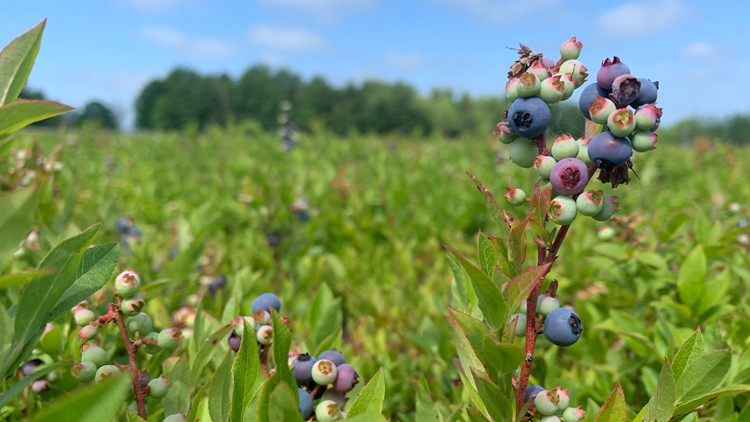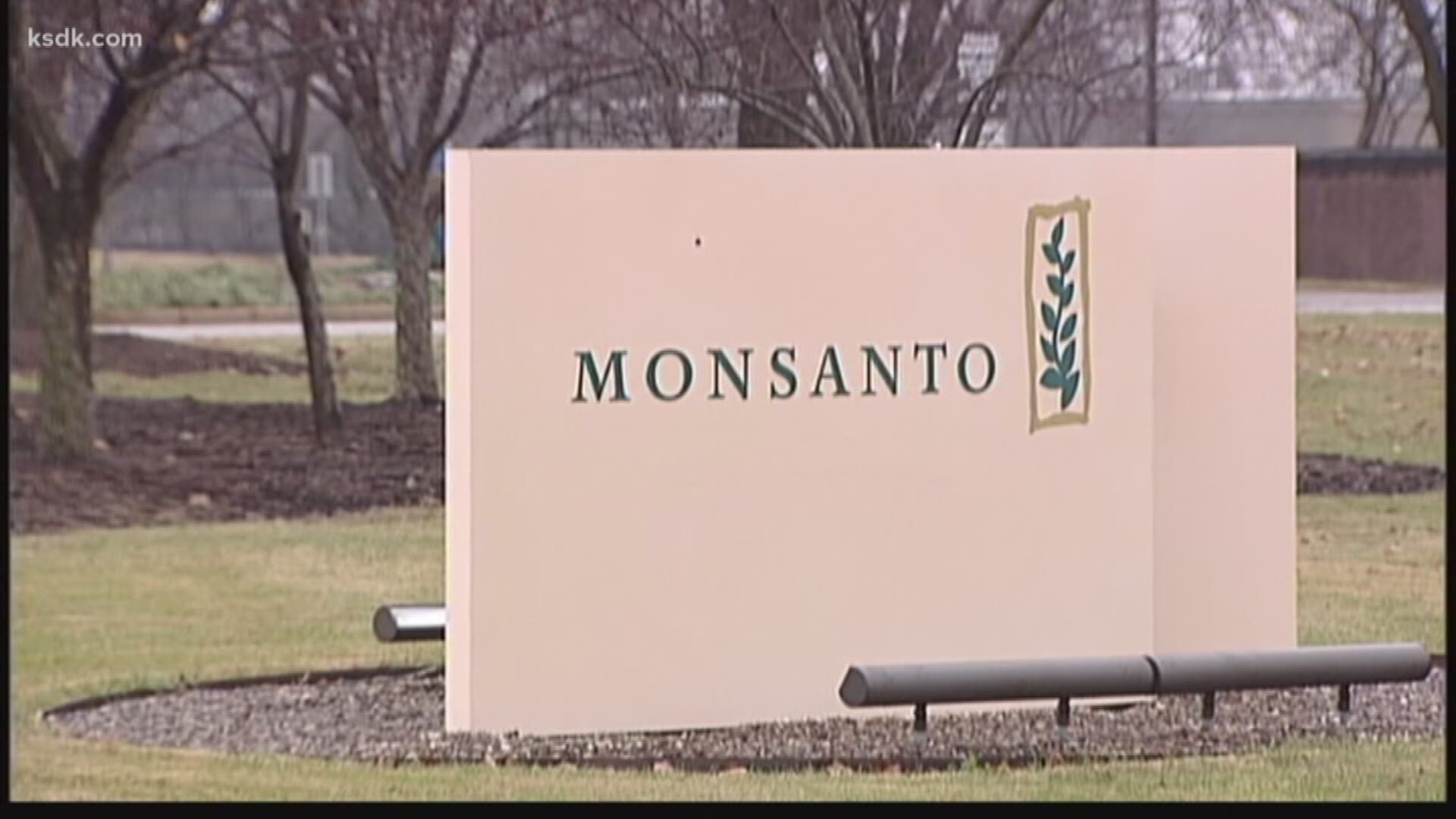MAINE, USA — A new University of Maine study found some blueberry fields are warming faster than others depending on factors like location, season, and time, and a researcher from that study says this could lead to fewer berries being produced.
The study found blueberry fields in Piscataquis and Washington counties are warming faster and experiencing longer growing seasons than other Maine counties analyzed by researchers, but their average temperatures are not as high.
Dr. YongJiang Zhang is an assistant professor of plant physiology at the School of Biology and Ecology at UMaine. He worked on this newest blueberry study.
In terms of location, Zhang told NEWS CENTER Maine northern blueberry barrens are warming faster than southern barrens, with coastal fields warming faster compared to inland fields.
The study applies to both wild blueberries and those grown by farmers, according to the researcher.
His big message to blueberry farmers? "We need to be ready," he said. Depending on a blueberry field's location and season, farmers may need to use new precise techniques to mitigate the effects of climate change.
Wild blueberry plants are more resilient to drought. They can recover from severe drought by resprouting, according to Zhang.
"They are amazing plants. They are really strong and resilient," Zhang said.
But the crop yield or berry production is sensitive to climate change or drought. And Zhang said yield depends on water conditions of the year. Wild blueberries naturally grow in barrens in drought. They are adapted to those environments.
"They can survive, but they may not produce berries anymore if you have warming up and drought," the researcher said. "If the plants can't get good water conditions, they can't produce more berries."
Maine blueberry farmers in areas warming faster need to be prepared. The study showed one of the more damaging effects of warming is the increase in water stress. Farmers may need to mitigate this with irrigation, according to Zhang.
"We also noticed that some small growers don't have irrigation systems. Sometimes irrigation can be really expensive," he said.
The increased warming has both positive and negative effects. Growers may need to use more water and nutrients, Zhang said. The warming creates longer growing seasons, but there are risks. If a blueberry plant develops earlier in the spring due to warmer temperatures but is then hit with a frost event, that can damage the plants, especially the flowers. They're sensitive to frost.
But an extended growing season may also mean plants have more time to grow and produce sugar, the researcher said. It's possible the plants will produce more berries during an extended season if they have enough water and fertilizer.
A warmer environment also means drier soil and plants, which could inhibit disease. Pathogens typically need wet environments to spread, according to Zhang.
"Overall, I think warming and [an] extended growing season have both benefits and negative impacts," he said. "We should use the positive impacts to mitigate those negative effects."
The study also found minimum nighttime temperatures increased over the past 40 years at fields in all counties faster than those for the daytime maximums. This shift could result in blueberries producing more carbon dioxide than they absorb.
Zhang said the nighttime is warming faster compared to the daytime, and plants can only do photosynthesis or absorb carbon dioxide during the day when light is there. During the night, they consume sugars. What this means for blueberry plants is they may produce fewer berries because they have to consume the sugars produced during the day.
So what happens next? Zhang said researchers hope to study how blueberries will respond to warming, climate change, and increasing drought. They'll learn new details and mechanisms on how the plants will respond. And once they have that information, researchers can study new techniques to help mitigate the negative effects on the plants.
Elana Beal, with Josh Pond Farm in Whiting, told NEWS CENTER Maine in recent years that the start of their blueberry season has crept earlier and earlier.
"In the past two years, we've started our harvest in July ... for the first time in decades!" Beal said. "Our typical start is mid-August."
Although the growing season has started earlier, it also ends earlier, according to Beal.
"We are not experiencing a longer growing season when it comes to blueberries," she said. "Our blueberries are only ripe for a certain period of time, and the heat and drought conditions in recent years have actually shortened their peak ripeness period with the lack of moisture in the ground."
Beal said the farm isn't changing how it operates with regards to blueberry fields warming faster.
She added, "We still monitor the fields the same way we always have and begin harvest when the blueberries are ready."



